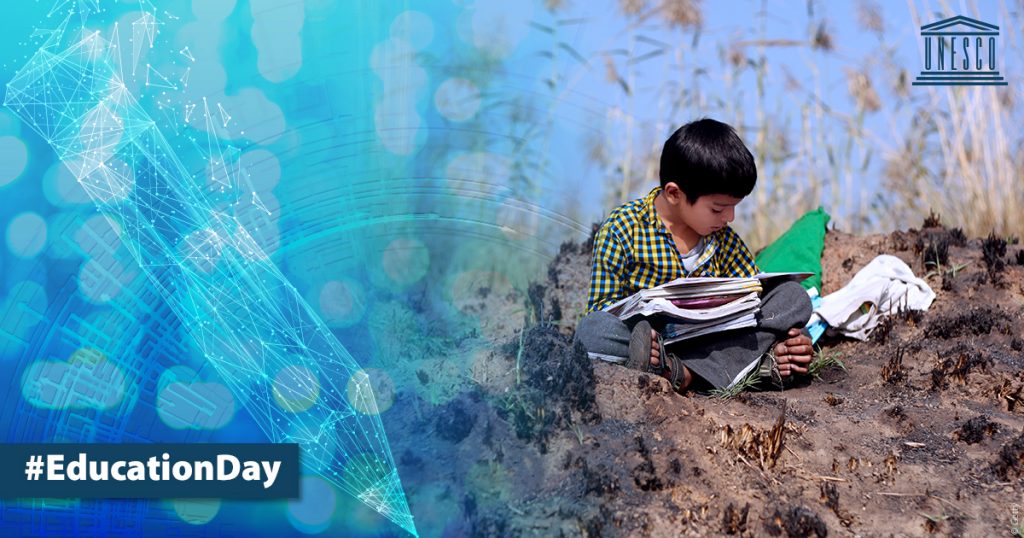As we mark International Day of Education, David Atchoarena urges countries to redouble their efforts to ensure no one’s right to education is denied

Today is International Day of Education, a moment not only to celebrate education’s powerful contribution to sustainable human prosperity, progress and peace, but also to assert its wider value – as a human right and as an important public good.
It is an opportune time to consider both what we have achieved in realizing the right to education and how far we have to go to ensure this right is realized for every woman, man and child, wherever they live in the world, whatever their background or personal circumstances.
The global challenges we face are enormous. Some 258 million children and youth still do not attend school, four million children and youth refugees are out of school, and 773 million adults around the world cannot read or write, most of them women. In too many cases, disadvantaged and marginalized groups remain excluded from participation in adult learning and education, as the new UNESCO Global Report on Adult Learning and Education points out. Their right to education is being denied. This is unacceptable.
UNESCO recently launched the Futures of Education initiative ‘to reimagine how knowledge and learning can shape the futures of humanity in a context of increasing complexity, uncertainty and precarity’. It is timely and much needed.
The UNESCO Institute for Lifelong Learning will play a vital role in shaping the future vision we need if we are to make education for all a reality. We are convinced that lifelong learning is essential for sustainable development. The challenges of the future demand resilient, creative populations, engaged in their communities and capable of adapting to change throughout their lives. We can no longer afford to neglect the skills and talents of millions of people, particularly those whose poor literacy and numeracy skills represent a huge practical barrier to reengaging either with education or with employment.
Only by adopting lifelong learning as the overarching principle for education planning and policy-making can we hope to build the kind of future these people deserve. Without inclusive and equitable quality education and lifelong opportunities for all, countries will not succeed in achieving gender equality or breaking the cycle of poverty that is leaving millions of children, youth and adults behind.
More than 170 members of the UNESCO Global Network of Learning Cities (GNLC) testify to the fact that considering education from a lifelong leaning perspective is beneficial to all. Close cooperation between education stakeholders ensures that educational biographies are driving their services, preventing the loss of learners between different educational levels, and ensuring that there is a second chance also for those previously left behind. Moreover, learning cities around the world have developed and shared innovative solutions to the problems of climate change, inequality, the changing world of work, and many other critical issues. Throughout this week, UIL has been sharing examples of best practice from UNESCO learning cities.
Although many promising developments are on the horizon, progress against Sustainable Development Goal (SDG) 4 is too slow. We need to change track if we are to achieve inclusive and equitable quality education and lifelong learning for all. UIL and our partners worldwide have comprehensive expertise to ensure that learning opportunities are offered to all throughout life. I hence strongly urge UIL’s friends and partners to share their views on what the future of education should look like.
David Atchoarena is Director of the UNESCO Institute for Lifelong Learning
